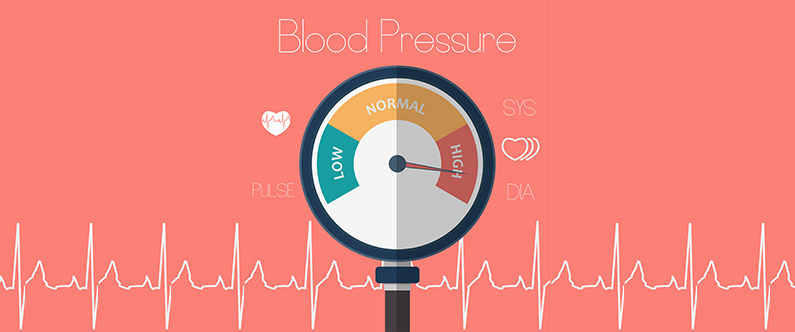High Blood Pressure – ‘the Silent Killer’!
 Most of the time, individuals with high blood pressure may not feel any symptoms, making regular blood pressure checks essential, particularly for those at a higher risk of developing high blood pressure
Most of the time, individuals with high blood pressure may not feel any symptoms, making regular blood pressure checks essential, particularly for those at a higher risk of developing high blood pressure
Authors: Dr. Sonia Chaabane, Dr. Sohaila Cheema, and Dr. Karima Chaabna
Blood pressure is the force exerted by the blood on the walls of the arteries as it circulates through the body. High blood pressure or hypertension occurs when blood pressure is consistently too high. According to the World Health Organization, 1 in 4 men and 1 in 5 women worldwide suffer from high blood pressure.
Blood pressure measurements
Blood pressure is expressed as systolic pressure/diastolic pressure in millimeters of mercury (mm Hg). The systolic pressure is the top number and shows the pressure with which blood is pushing against artery walls when the heart beats. The diastolic pressure is the second number and shows the pressure with which blood is pushing against artery walls while the heart is resting between beats.
Blood pressure is categorized as follows:
- Normal blood pressure: Readings less than 120/80 mm Hg.
- Elevated blood pressure: Readings consistently ranging from 120-129 systolic and less than 80 mm Hg diastolic.
- Stage 1 hypertension: Readings consistently ranging from 130-139 systolic or 80-89 mm Hg diastolic.
- Stage 2 hypertension: Readings consistently at 140/90 mm Hg or higher.

How to check your blood pressure?
Home blood pressure monitors are available at local stores and pharmacies. Follow these steps for an accurate measurement:
- Use a monitor with a cuff that wraps around your upper arm.
- Avoid exercise, smoking, eating, and drinking caffeinated beverages 30 minutes to 1 hour before taking the reading.
- Be seated quietly for five minutes before the reading is taken.
- Avoid talking when your blood pressure is being measured.
- Two readings should be recorded and averaged for accurate results.
Who is at risk of high blood pressure?
Risk factors for developing high blood pressure are an unhealthy lifestyle, a family history of high blood pressure, advanced age, high stress, and certain conditions like uncontrolled diabetes, obesity, obstructive sleep apnea, and chronic kidney disease.
Why worry about high blood pressure?
Without any noticeable symptoms or warning signs, high blood pressure can damage blood vessels and the heart as well as various organs, including the brain, eyes, heart, and kidneys. The damage might only be recognized when a sudden major health event occurs (e.g., heart attack, stroke, or kidney failure).
High blood pressure can cause headaches, dizziness, fatigue, and shortness of breath. However, most of the time, individuals with high blood pressure may not feel any symptoms, making regular blood pressure checks essential, particularly for those at a higher risk of developing high blood pressure. Recommendations to keep your blood pressure in a healthy range

- Quit smoking: Tobacco injures blood vessel walls and speeds up the process of hardening the arteries. If you smoke, ask your healthcare provider for strategies to help you quit.
- Stop alcohol intake: There is no safe amount that does not impact health.
- Maintain a healthy weight: Seek guidance from a healthcare professional to identify a desirable weight.
- Be active, with at least 150 minutes a week of moderate aerobic activity or 75 minutes a week of vigorous aerobic activity.
- Get 7 to 9 hours of sleep daily. Go to bed and wake up at roughly the same time every day, including on weekends.
- Manage stress by practicing slow and paced breathing (5 to 7 deep breaths per minute) combined with mindfulness techniques.
Cultivating a healthy lifestyle is key to preventing and managing high blood pressure. Regular monitoring of blood pressure is crucial, so talk to your doctor for personalized guidance if you are facing challenges in maintaining a healthy weight, sleeping, stopping smoking or alcohol intake, or if you are at high risk of developing high blood pressure.
Sources: American Heart Association (AHA) 1 & 2, World Health Organization (WHO) 1 & 2, Harvard Health Publishing 1 & 2, Johns Hopkins Medicine, Sleep Foundation, National Kidney Foundation, Harvard T.H. Chan, Institute for Population Health (IPH) Newsletter 1, 2 & 3, National Heart, Lung, And Blood Institute (NHLBI), Mayo Clinic 1 & 2.
Editor: Julietta Mirghani